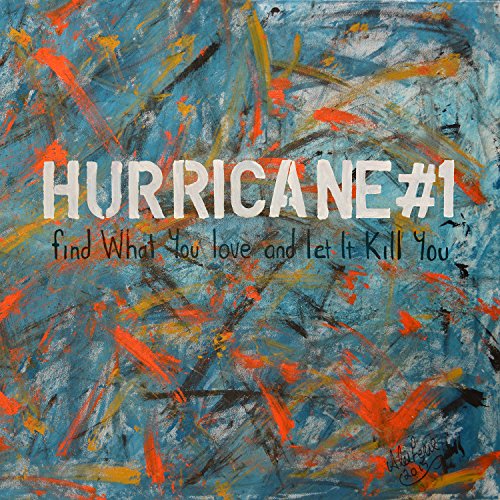
Hurricane #1
Find What You Love and Let It Kill You
Release Date: Nov 27, 2015
Genre(s): Pop/Rock, Alternative/Indie Rock, Indie Rock, British Trad Rock
Record label: Tapete Records
Music Critic Score
How the Music Critic Score works
Buy Find What You Love and Let It Kill You from Amazon
Album Review: Find What You Love and Let It Kill You by Hurricane #1
Fairly Good, Based on 4 Critics
Based on rating 7/10
Originally a collaboration between Ride guitarist Andy Bell and Scottish boxer turned singer/songwriter Alex Lowe, Hurricane #1 released two well-received albums on Alan McGee's Creation Records in the '90s before Bell left the band and ultimately joined as bassist with Oasis. After Bell's departure, Hurricane #1 called it a day and Lowe embarked on a solo career. In 2013, with three solo albums to his credit as well as a fruitful career as an abstract impressionist painter, Lowe was diagnosed with cancer.
Based on rating 6/10
Hurricane #1 started as Ride guitarist Andy Bell’s thing. When the seminal shoegaze band went their separate ways in the mid-‘90s, Bell teamed up with singer-songwriter Alex Lowe to form a band that has, for better or worse, gone down in Britpop history as brief and moderately successful side project thanks to their straightforward less gaze/more pop approach. Now, Hurricane #1 is Alex Lowe’s thing.
Based on rating 2.5
A festival at the Sussex University grounds of Stanmer Park in Brighton saw one of Hurricane #1’s earliest appearances following their 1996 formation after Mark Gardener instigated Ride’s break-up. Led by fellow Ride songwriter Andy Bell, a three-song set saw them kick off the main stage line-up for one of the day’s best performances that also saw a young Stereophonics, Shed Seven and headliners Levellers amongst the bands to follow. Will Pepper (bass), Gareth Farmer (drums) and later Alex Lowe (vocals/guitar) were the other original members of a band first signed to Creation by Alan McGee but, arriving after the initial boom of Britpop that had already seen fellow Creation act Oasis release two huge albums, they instantly found themselves in the Manchester outfit’s shadow, critics dismissing them as simply a weaker version of the label’s biggest act.
Opinion: Excellent
Find What You Love and Let It Kill You – a double-edged phrase if there ever was one. The quote comes from the writings of Charles Bukowski, which automatically lends it a certain romantic caché. But what does it really mean? It’s tempting to see it as being about passion, about fully giving in to your desires to the point of total absorption. But it could just as easily be about addiction, especially when taken in its original context.
'Find What You Love and Let It Kill You'
is available now

